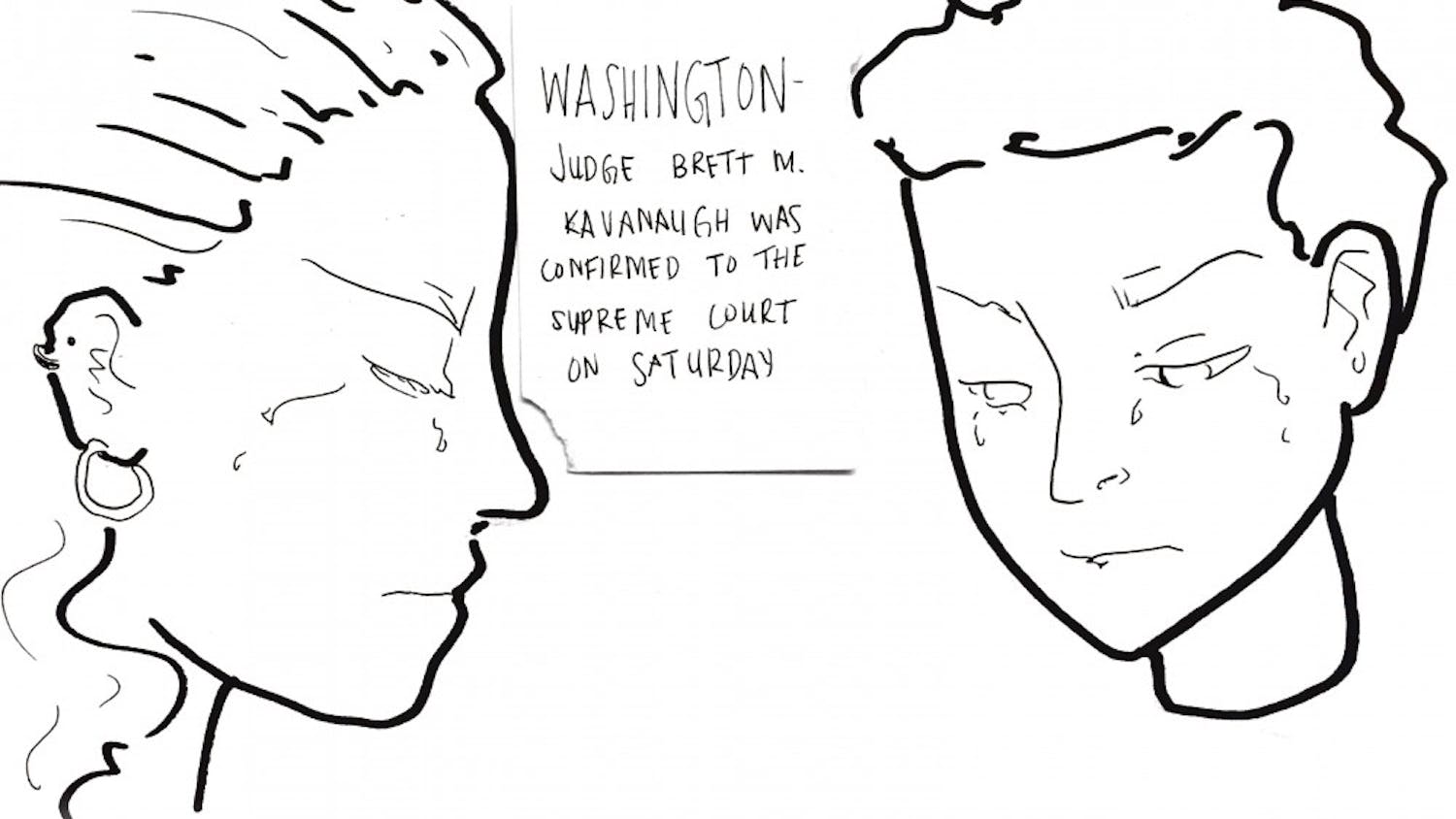If you have read any of my articles, then you know that I’m no fan of the Greek system. The toxic masculinity, the sexual misconduct, the omnipresent stench of Keystone Lite … I could go on, but I will refrain. Instead, I will look past my feelings about the Greek system and its validity as a space on campus into a future scenario where the College listens to the voices of bleeding-heart feminists who criticize the Greek System. What happens then?
Imagine this: Dartmouth, shrouded in its isolated haven, abolishes the Greek system. Students mull around Webster Avenue late into the nights. They go to Collis events and Friday Night Rock. The empty shell of Domino’s Pizza haunts the gas station corner like a forlorn alumnus. Male enrollment in fall term’s more difficult classes rises. Janitors all over campus rejoice as their days become more vomit-free. In the small hours, rising numbers of students scroll through Tinder lying sideways on their twin extra-long mattresses, missing their basement hookups and date-parties. Where have the old times gone?
They have gone in the direction of the administration, in the direction we have travelled since the College derecognized Alpha Delta in 2015. How far, in this imagined scenario, we have come! Sexual misconduct reported on campus has dropped. Women feel safer, more respected and empowered on a campus which has transformed into a place of boundless potential for all genders. Dick’s House sees fewer cases of alcohol poisoning than ever before, and the Brief Alcohol Screening & Intervention for College Students program has become basically defunct.
But our victories come at a price. Truthfully, people are bored, stressed and restless. The places students used to go to blow off steam do not exist anymore, and no campus venue functions to replace them. The class hours remain long, and homework does not get any easier. What’s more, the College does not rake in money like it used to. Alumni, outraged by the administration’s defunding of Greek communities, donate less in disapproval or refuse to donate entirely. The newer ones, the ones who came to Dartmouth and never knew the Greek system had existed, donate less simply because they did not form the same kinds of close communities it facilitated. They feel less connected to Dartmouth and less compelled to see it thrive. Yet the College spends more and more to put on campus events, concerts and anything else that can fill the social void left by Greek life. Oddly enough, attendance at campus-run events never spikes to the degree the College expected.
What does spike in a post-Greek Dartmouth? Off-campus housing. The apartments above Main Street, the School Street homes, even housing options as far off as White River Junction overflow with students. The Hanover police department handles more noise complaints than before from community residents whose homes have suddenly become the neighbors to Dartmouth’s central night life scene. Hordes of students overflow the streets on Saturday nights, drunk off their hard alcohol and unafraid of Safety and Security walk-throughs or the College’s reprimands. Greek life may have been abolished in name, but it has only sunken its claws deeper into the student population. Now the communities that were defunded and driven from their on-campus homes have found freer, even less supervised locations to host parties. Nobody monitors their hazing practices. Nobody can threaten them with suspension for consuming and distributing hard alcohol. The same women who were preyed upon in fraternity basements yesteryear find themselves alone and afraid in these new unregulated spaces. When trouble comes, they do not know where to turn. How will the College support victims harmed at illicit parties in off-campus locales? Will it have to alter its resources to reflect a rise in off-campus sexual assault and harassment?
This is all speculation, I’ll admit. But even if it’s just a bit true, it still casts doubt on whether the Greek system itself is really Dartmouth’s biggest issue. I want the College to fix the Greek system. And while the simplest way to do so may mean abolishing it altogether, students would suffer from the unintended consequences. If the College continues to derecognize the Greek spaces on campus, it needs to answer to concerns about what this will mean for the campus community. It will need viable substitutes to fraternity-hopping on the weekends — students have few other source of entertainment in rural Hanover. The Greek system cannot simply be allowed to relocate to covert, off-campus spaces. An “out of sight, out of mind” policy will not work because unsupervised, unregulated Greek-like communities would pose a graver threat to students — women, in particular — than current Greek life does. As the College moves towards eradicating the devil we know, it must also take into consideration the devil we do not.


